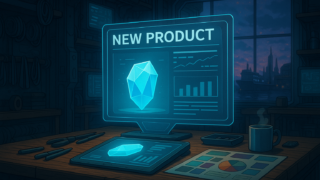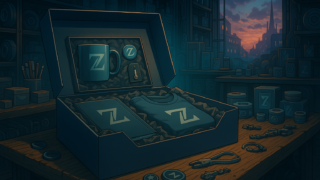Imagine typing “T-shirt sustainable minimal” and getting a fully built online store—with homepage, product listings, and checkout ready to go.
Shopify’s newly announced AI Store Builder automates both design and development, eliminating the biggest hurdle in starting an e-commerce site. For small teams or merch-based businesses, this could be a total game-changer.
1. Today’s Highlight (News Summary)
- Source: [Reuters]
- Summary:
Shopify unveiled its “AI Store Builder,” which auto-generates complete e-commerce storefronts from just a few keywords. Users receive three fully designed layout options—complete with images and copy—and can launch instantly. The system integrates with existing AI tools for inventory, visuals, and content.
Key Features:
- One-prompt store creation: No drag-and-drop needed
- Three layout options: Compare and edit on the fly
- End-to-end AI integration: From images to inventory to product copy
→ It drastically shortens the “build–polish–launch” cycle and compresses the entire product-to-market timeline.
2. What Does This Mean for Different Players?
🎨 For Creators (Designers & Product Developers)
Let AI handle the framework so creators can focus on experience and fine-tuning. You can now test product variations or campaign pages in daily loops, not weeks.
🏢 For Sellers (Marketers, Sales, Pop-up Shops)
Pitch-ready “virtual stores” accelerate client approvals. Temporary or seasonal e-commerce shops become low-cost experiments, and A/B testing is seamless.
👥 For Buyers (Customers & Fans)
Shorter brand cycles mean trend-responsive products appear faster. With keyword-based storytelling, stores evolve around themes—making shopping a more narrative-rich experience.
3. How Could You Apply This?
Here’s how a lean team could try this out:
- Use ChatGPT to generate keyword sets (theme + sales pitch)
- Build 3 store versions using Shopify AI Store Builder, vote internally on the best
- Create hero visuals with Firefly or Midjourney and swap them in
- Use Canva to instantly create social promos and run pre-launch polls
→ Micro e-commerce operations, running in weekly cycles, become feasible even for small teams.
4. Editor’s Note
When it takes zero effort to “just make an LP”, ideas are judged by post-launch data—not pitch decks.
In the age of AI, maybe the most powerful prototype is a real, working store.







Comment